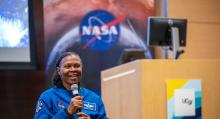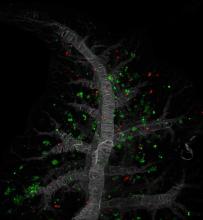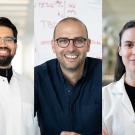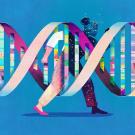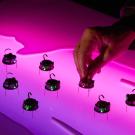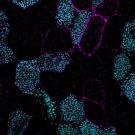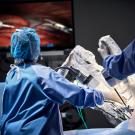News
UCSF Scientists Win Pew Awards for Cancer and Neuroscience Research
Three UC San Francisco scientists have received 2024 Pew awards to fund their research in neuroscience and cancer. They include a cognitive scientist, Vijay Mohan K Namboodiri, PhD, who is challenging the reigning theory of learning; Justin Eyquem, PhD, a bioengineer who aims to build cancer
Genetic Testing Is the Key to Our Health Secrets
Erin Fusco loves to visit Disneyland. She’s had an annual pass since she was 18 years old and has visited hundreds of times. But there was a stretch when her regular trips to the happiest place on earth were put on hold. When Fusco, now 37, was in her 20s, she was living in the Bay Area with her
UCSF Treats First Patient with Homegrown Chimeric Antigen Receptor (CAR) T-cell Therapy
This month marked an important milestone for UCSF faculty and clinicians working to take on the challenge of glioblastoma multiforme (GBM). They treated their first patient with a promising chimeric antigen receptor (CAR) T-cell therapy that was fully conceived, designed, optimized and manufactured
How the Cell Cycle Orchestra Plays an Unexpected New Tune
The awe-inspiring process of cell division can turn a fertilized egg into a baby – or a cancerous cell into a malignant tumor. With so much at stake, nature keeps it tightly controlled in a process called the cell cycle that scientists thought they thoroughly understood. But now it turns out there
UCSF Health Cancer Experts Featured at Premier Cancer Meeting
Oncology specialists from around the world will come together for the 2024 American Society of Clinical Oncology (ASCO) Annual Meeting to discuss the latest developments in cancer care, research, technology and education. The meeting will feature over 200 sessions complementing this year’s theme,
UCSF Health Reaches 15,000 Robotic Surgeries
Gastrointestinal cancer surgeons at the UC San Francisco have performed the health system’s 15,000th robotically assisted minimally invasive surgery, making it the first University of California health center to reach this milestone. UCSF Health has the busiest robotic surgery program in the UC
The Biggest Energy Users in Cancer Treatment Aren’t What You Think
Energy expended for hospital and clinic electricity, climate control and ventilation is by far the biggest source of greenhouse gas emissions in radiotherapy, a treatment used in more than half of cancer cases, a new study found. The Lancet Oncology study, led by UC San Francisco researchers, sought

